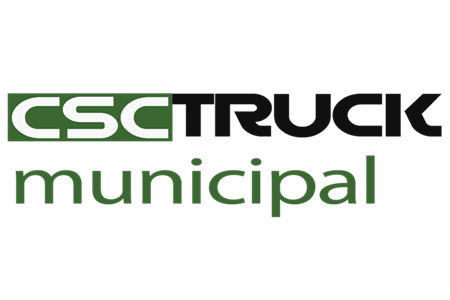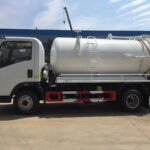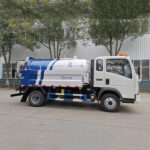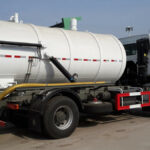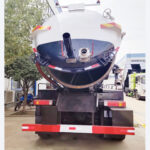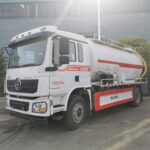Wastewater management is a crucial part of maintaining public health and ensuring the safety of our environments. Efficient wastewater systems help to prevent pollution, reduce health risks, and improve the overall quality of life in urban and rural communities. Sewage trucks, often referred to as vacuum trucks or sewage cleaning trucks, play an integral role in this process. These vehicles are designed to remove waste from sewer lines, ensuring that the waste is properly collected, transported, and treated. With their advanced technologies and multi-functional capabilities, sewage trucks are indispensable tools for maintaining the health of sewage systems and protecting both public and environmental well-being.
1. The Role of Sewage Trucks in Wastewater Management
Sewer trucks serve as the backbone of wastewater management systems by removing accumulated waste from sewer lines and treatment plants. Over time, sewer systems collect sludge, debris, grease, and other materials that hinder the flow of waste through pipes. If left unaddressed, these materials can lead to blockages or overflows, resulting in potential flooding, contamination, and costly repairs.
Sewage trucks are equipped with powerful vacuum pumps that create negative pressure, allowing them to efficiently suck up sludge and debris from the sewer lines. Once collected, the waste is stored in the truck’s tank and transported to a designated disposal or treatment facility for processing. This process is essential for maintaining the functionality of sewer systems, ensuring that they can handle the volume of waste produced by growing populations in urban areas.
By keeping sewer lines free from waste and debris, sewage trucks help to prevent overflows and blockages, which can cause public health hazards and environmental pollution. They are also used to clean and maintain wastewater treatment plants, removing solids and liquids from holding tanks to improve the efficiency of the treatment process.
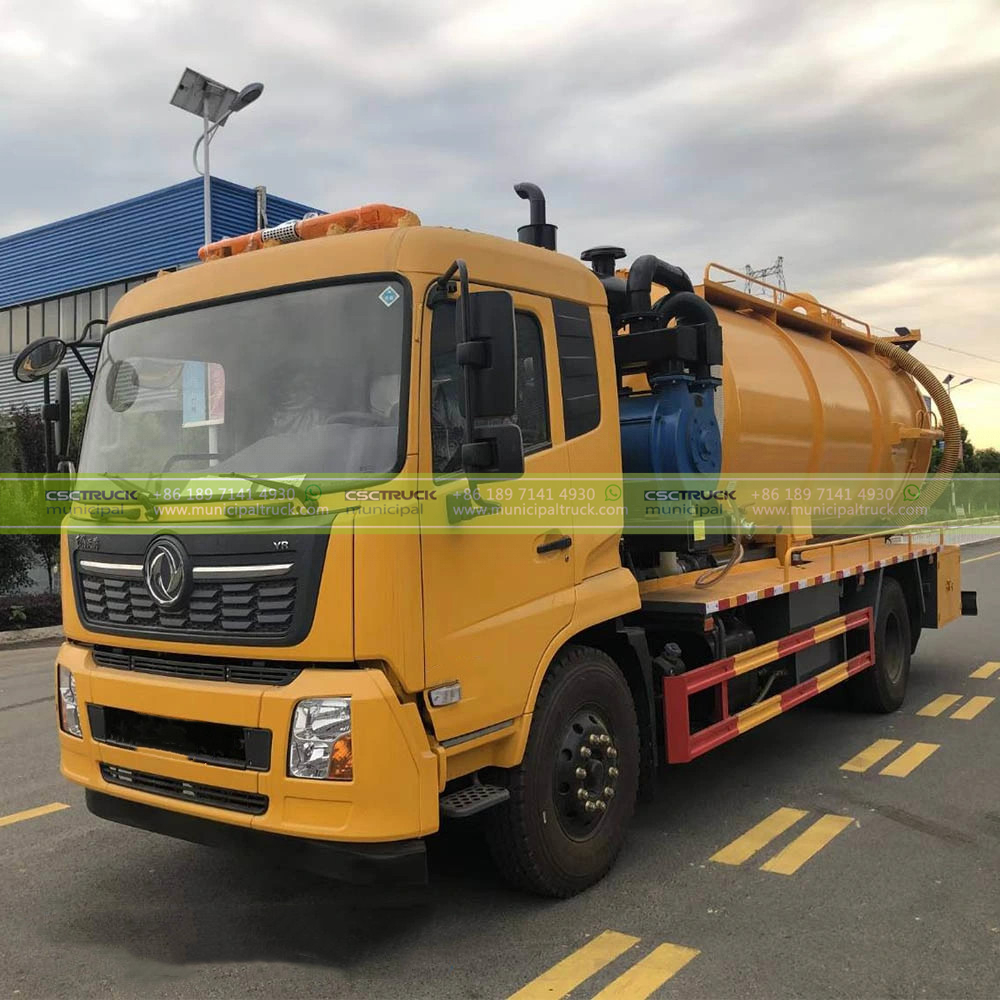
2. Preventing Sewer Blockages and Overflows
One of the most important functions of sewage trucks is to prevent sewer blockages and overflows. Blockages in sewer lines can cause waste to back up into homes, streets, or natural water sources, leading to serious health and environmental concerns. Overflow incidents, particularly those involving untreated sewage, pose a risk of contaminating local water bodies, which can affect aquatic life, disrupt ecosystems, and lead to public health crises such as waterborne diseases.
Regular maintenance by sewage trucks is key to preventing these issues. The vacuum trucks remove materials like grease, fats, and solid waste that can form clogs within pipes. Without proper cleaning, these substances accumulate over time and eventually obstruct the flow of sewage, creating pressure in the system. Timely cleaning with sewage trucks ensures that the pipes remain clear, reducing the risk of blockages and overflows.
Additionally, vacuum sewage trucks use high-pressure water jets to break up hardened debris, which helps to clean pipes thoroughly. The combination of vacuum suction and water pressure maximizes the effectiveness of the cleaning process and enhances the overall flow of wastewater.
3. Environmental Protection and Waste Disposal
Sewage trucks contribute significantly to environmental protection by reducing the risk of sewage spills and pollution. When sewer systems become overwhelmed or malfunction, untreated sewage can spill into streets, rivers, lakes, or oceans. These spills can carry harmful bacteria, viruses, and chemicals, posing a serious threat to both human health and wildlife. Sewage trucks help to avoid these situations by keeping sewer lines clean and operational.
Beyond keeping the sewer systems free from blockages, sewage trucks also ensure that waste is properly disposed of. The waste collected by the truck is transported to specialized treatment facilities where it undergoes purification processes before being safely discharged into the environment or repurposed for other uses. Many modern treatment plants also use waste for energy production through anaerobic digestion, further contributing to sustainability efforts.
In rural or remote areas, where sewage treatment facilities may not be readily accessible, sewage trucks can also provide direct waste removal services to ensure that waste is disposed of in an environmentally responsible manner.
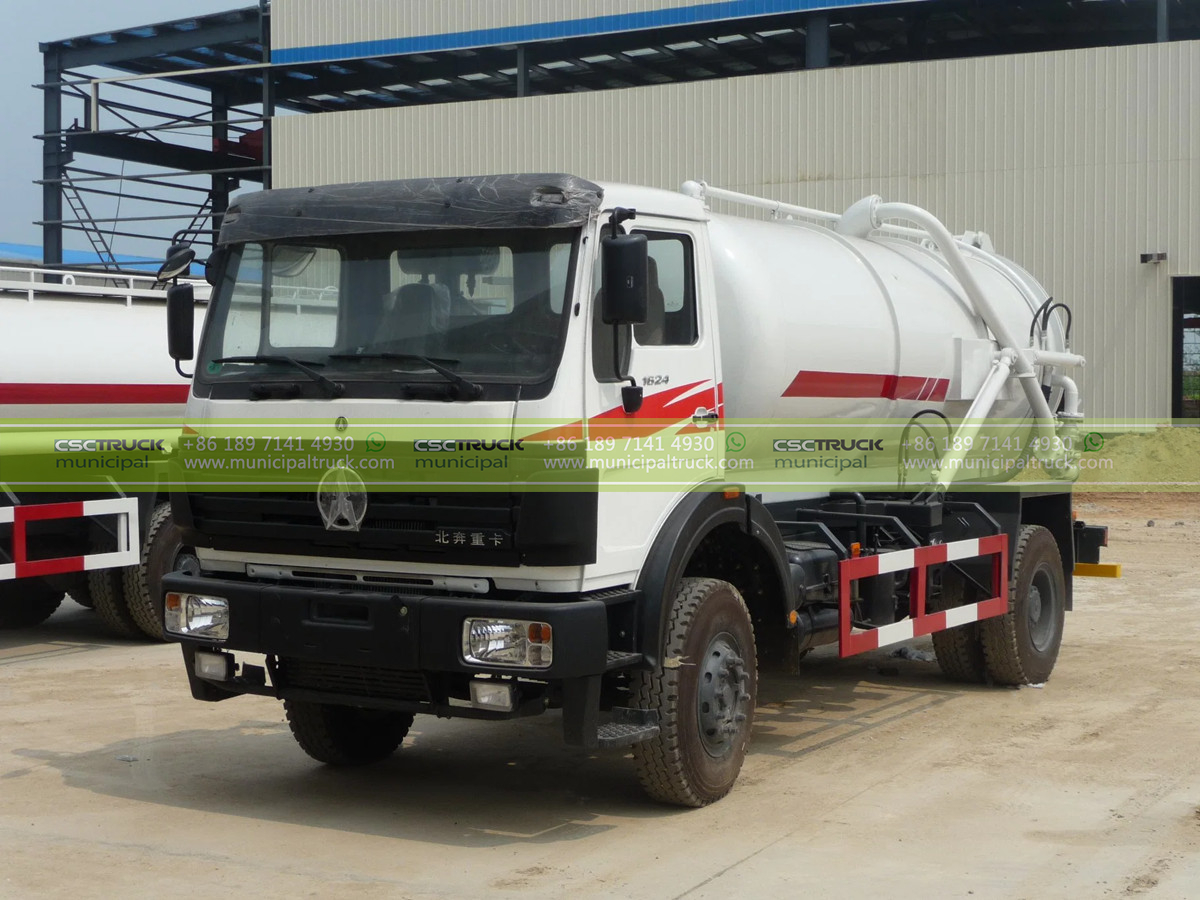
4. Efficiency and Cost-Effectiveness of Sewage Trucks
Sewage trucks are designed for maximum efficiency, which makes them a cost-effective solution for wastewater management. Traditional methods of sewer cleaning often require extensive manual labor and can take much longer to complete, increasing operational costs. Vacuum sewage trucks, on the other hand, provide a more streamlined, faster, and safer way to remove waste from sewer systems.
The high vacuum suction power and large-capacity storage tanks of these trucks allow for quicker clean-up, reducing the need for frequent service visits. This saves time and labor costs, while also improving the turnaround time for each job. Moreover, regular cleaning and maintenance by sewage trucks help to avoid costly repairs and environmental cleanup efforts caused by blockages or sewer failures.
By increasing the lifespan of sewer systems and reducing the frequency of emergency interventions, sewage trucks ultimately lead to long-term savings for municipalities and property owners alike.
5. Enhanced Safety and Public Health
Maintaining clean sewer systems is crucial for ensuring public safety and health. Clogged or overflowing sewers can create hazardous conditions in both urban and rural areas. Stagnant water and exposed waste are breeding grounds for pathogens that can cause serious health issues, including gastrointestinal infections, cholera, and other waterborne diseases. Sewage trucks play an essential role in minimizing these risks by keeping sewer systems free from debris and blockages.
In addition to keeping sewage systems running smoothly, sewage trucks are often designed with safety features to protect operators and the public. These trucks are equipped with advanced filtration systems, noise reduction technologies, and automated controls that enhance safety during operation. For example, many trucks feature remote-controlled operation for monitoring and guiding the suction hose, ensuring that operators can safely handle the equipment without direct exposure to hazardous waste.
Regular use of sewage trucks for preventative maintenance is a proactive approach to safeguarding public health. It helps to maintain the infrastructure, prevent health risks, and ensure that waste is handled safely and efficiently.
In summary, sewage trucks are integral to maintaining the functionality of urban and rural sewer systems. Their ability to efficiently remove waste, prevent blockages, and ensure environmental protection makes them essential for effective wastewater management. As urban populations grow and infrastructure becomes more complex, the need for advanced, reliable sewage trucks will only continue to rise. Through their powerful suction technology, environmental benefits, and cost-efficiency, sewage trucks remain indispensable in keeping communities clean, safe, and healthy.
